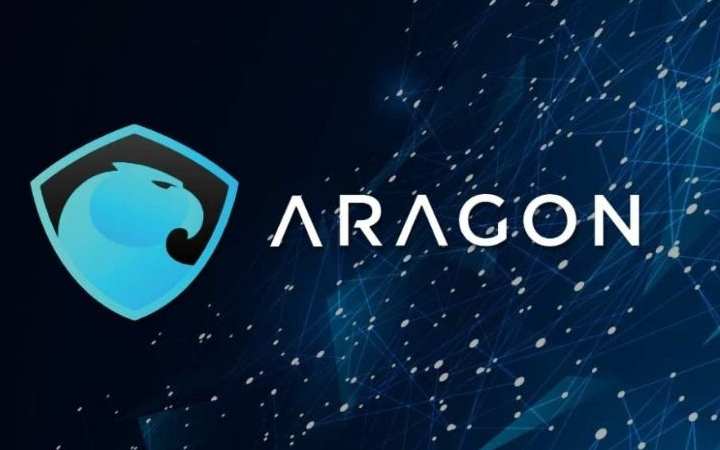
Aragon is an open-source software used to maintain and create decentralized autonomous organizations (DAOs) on the Ethereum blockchain.
If you’re unfamiliar, a DAO is software running on a blockchain that offers users a built-in model for the collective management of its code.
The Aragon network software has three main offerings:
- Aragon client – a toolkit for developers to create customizable online organizations that aim for more transparent group participation.
- Aragon network – an organization that supports the interactions between the platform’s community of DAOs.
- Aragon Association – a non-profit that manages and allocates the funds raised from Aragon’s token sale.
Central to managing the DAOs on its platform is ANT, Aragon’s native cryptocurrency, which grants owners the ability to vote on key decisions about the project’s future.
How Does the Aragon Network Work?
To create a DAO, developers first use AragonOS, a smart contract framework.
Modules available through AragonOS allow users to raise funds, incentivize contributors to join their community, and make decisions with group participation.
Every Aragon DAO uses three pre-installed features:
- Finance – Assists in managing the resources of an organization. Participants can submit transactions, access the transaction history, and view the DAO’s asset balance.
- Tokens – Crypto assets used to manage membership and structure within a DAO.
- Voting – Used for token holders to raise issues, cast votes, and examine outcomes.
Developers can also integrate the Agent app into their DAO, which enables organizations to interact directly with smart contracts on Ethereum.
Anyone is free to develop their own app for their organization or publish it for others to use.
The Aragon Court
The Aragon Court is a service that allows users to settle disputes within organizations hosted on the Aragon network that cannot be solved by smart contracts.
With this software, other users (called jurors) are tasked with reviewing arguments for specific disputes and casting a vote based on their stance on the matter.
To become a juror, Aragon users need to exchange their ANT coins for ANJ tokens, which must then be staked, or locked in special contracts on the network. The more ANJ a user stakes, the greater the chance they’ll be selected as a juror.
After the argument is resolved, jurors receive a reward in ANT coins, and the DAO updates any rules or outcomes required programmatically in the software.
Who Created Aragon?
The Aragon network was created in 2016 by Luis Ivan Cuende and Jorge Izquierdo, who also launched the Aragon Association and Aragon One, a company building services for Aragon.
In 2017, Aragon held an initial coin offering (ICO), raising 275,000 ETH (roughly $25 million at the time) by selling ANT coins (also called tokens). Aragon publicly launched on Ethereum’s mainnet in 2018.
The Aragon Network is announced to transition full power of the ecosystem to the token holder through the launch of Aragon v2 in late 2020.
Why Does Aragon Coin Have Value?
Aragon’s cryptocurrency, ANT, allows users to gain influence over the future of its ecosystem.
Users who hold ANT help govern the protocol, voting on proposals to determine changes in the Aragon Network. The Aragon team created ANT with the idea that the protocol would then be owned and operated by its users.
Additionally, ANT tokens can be used to acquire ANJ coins, which are required for users to participate in the resolution services provided by Aragon Court.
Source: https://www.kraken.com/en-us/learn/what-is-aragon-ant/

Comments